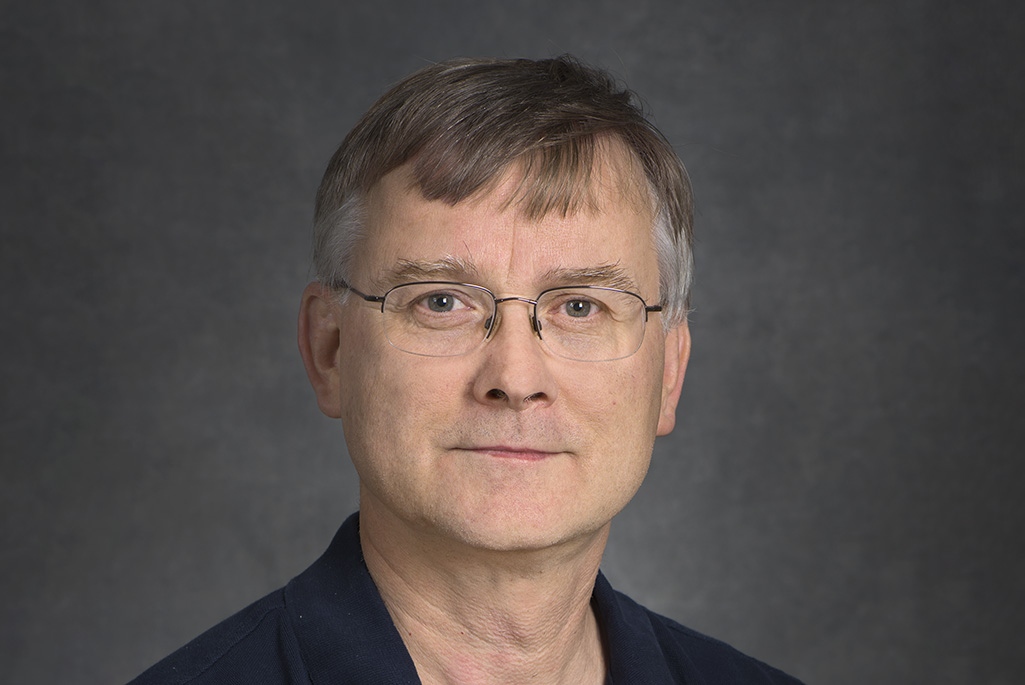Following an international search, Peter Fischer, an internationally recognized expert in magnetic materials, has been selected to serve as the next division director of Lawrence Berkeley National Laboratory’s (Berkeley Lab) Materials Sciences Division. Fischer has served as the deputy director of the Materials Sciences Division since 2015 and as interim division director since 2023.
“We are thrilled that Peter has accepted this appointment,” said Jeff Neaton, the associate laboratory director for the Energy Sciences Area. “He has a deep knowledge of and appreciation for the Materials Sciences Division’s scientific programs and operations, including the Center for X-Ray Optics, experience working across Berkeley Lab, and a history of successful partnership with program managers in Basic Energy Sciences.”
The Materials Sciences Division is one of four divisions that form the Energy Sciences Area, Berkeley Lab’s home for fundamental research in materials and chemical sciences. In the Materials Sciences Division, researchers advance the fundamental science of materials within the context of global energy-related challenges, developing techniques to design, discover and understand materials for a wide range of applications, including solar cells, computer chips, and nanoscale devices. Through the Division’s core programs and research centers, they cultivate a collaborative and interdisciplinary approach to materials research and help train the next generation of materials scientists.
“I am excited and honored to have the opportunity to lead the Materials Sciences Division,” said Fischer. “I look forward to working with such excellent and talented scientists, postdocs, and students supported by a dedicated team of admins and technicians to achieve our scientific goals in advancing materials science and solving important problems of the future.”
Fischer received his Ph.D. in Physics (Dr.rer.nat.) from the Technical University in Munich, Germany in 1993 on pioneering work with X-ray magnetic circular dichroism in rare earth systems. In 1996 he performed groundbreaking experiments at the BESSY synchrotron in Berlin/Germany in using soft x-ray microscopy for imaging magnetic nanostructures.
Since joining Berkeley Lab in 2004, Fischer has held multiple roles and leadership positions. In addition to his senior management roles in the Materials Sciences Division, he headed the soft X-ray microscopy beamline 6.1.2 at the Advanced Light Source, and is a major participant in the Non-Equilibrium Magnetic Materials Program, where his research is focused on the use of polarized synchrotron radiation for the study of fundamental problems in magnetism. Fischer has been a senior scientist at Berkeley Lab since 2016, and he is also an adjunct professor at UC Santa Cruz and a fellow of the American Physical Society and the Institute of Electrical and Electronics Engineers.
“Throughout my career, I have done materials research at various institutions in different parts of the world, but being at Berkeley Lab has been the most rewarding experience for me,” said Fischer. “My goal is to provide this experience to anyone working with us in the Materials Sciences Division.”
###
Lawrence Berkeley National Laboratory (Berkeley Lab) is committed to delivering solutions for humankind through research in clean energy, a healthy planet, and discovery science. Founded in 1931 on the belief that the biggest problems are best addressed by teams, Berkeley Lab and its scientists have been recognized with 16 Nobel Prizes. Researchers from around the world rely on the lab’s world-class scientific facilities for their own pioneering research. Berkeley Lab is a multiprogram national laboratory managed by the University of California for the U.S. Department of Energy’s Office of Science.
DOE’s Office of Science is the single largest supporter of basic research in the physical sciences in the United States, and is working to address some of the most pressing challenges of our time. For more information, please visit energy.gov/science.
